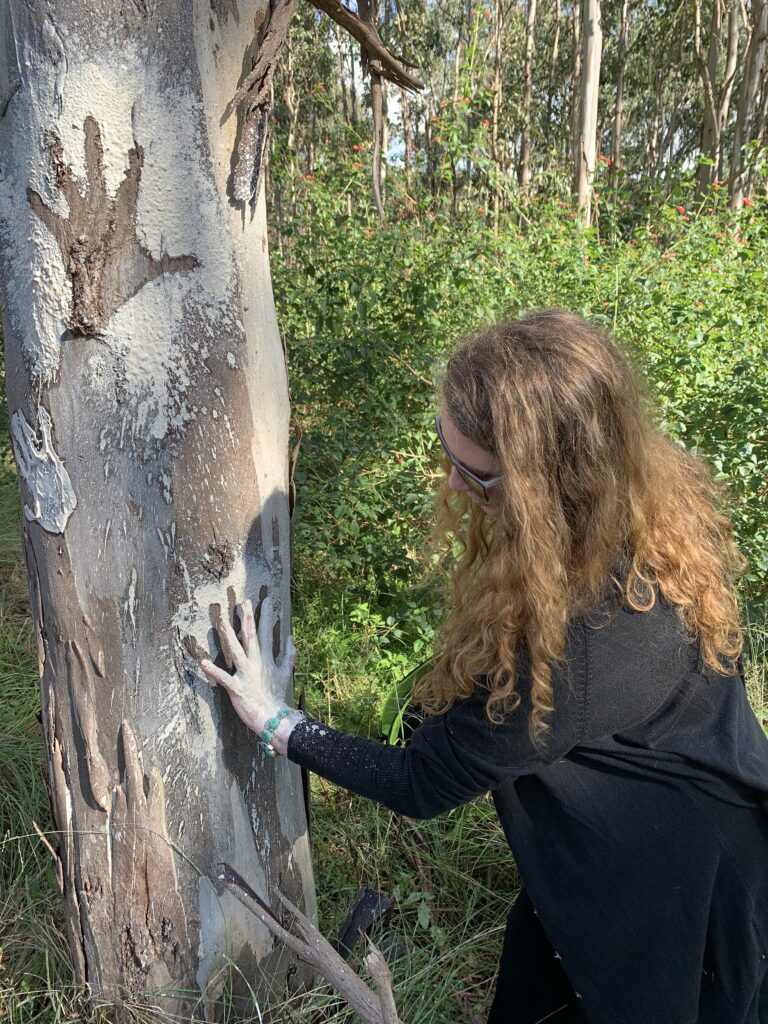
Aboriginal and Torres Strait Islander Histories and Cultures is one of the three cross-curricula priorities in the Australian Curriculum. It is designed for all students to engage in reconciliation, respect and recognition of the world’s oldest continuous living cultures. The conceptual framework for learning comprises the underlying elements of Identity and Living Communities and the key concepts of Country/Place, Culture and People.
Here you will find teaching resources to support teaching and learning about this cross curricula priority, with particular focus on understanding connection to Country.
Please contact us if you have other useful resources or suggestions to improve this page.
Narragunnawali: Reconciliation in Education: Professional learning and teaching resources to building understanding of Aboriginal and Torres Strait Islander histories, cultures, and contributions, and to support the implementation of reconciliation initiatives.
Stage 1-5 | Reconciliation Australia
NAIDOC Week Education Resources
Stage 1-5 | National NAIDOC Secretariat
Uluru Statement from the Heart Education Resources
Stage 4-5 |
Schools Reconciliation Challenge
Reconciliation NSW
National Reconcilation Week
Reconciliation NSW
Know your Country Campaign and Education Resources: Discover new ways to acknowledge the First Nations Country you’re on and learn more about the Know Your Country Campaign.
Welcome to Country App
Museums and Galleries of NSW phone app
Aboriginal Nations and Languages in NSW/ACT
Reconciliation NSW
First Nation Perspectives Language Guidelines: Introductory information for educators using learning centre resources from Landcare Australia
Landcare Australia
Heal Country: Teaching resource produced for 2021 NAIDOC week addressing themes Knowing Country, Connecting to Country and Protecting Country.
Stage 3 | Cross Curriculum | Lesson plans, videos, classroom activities | Common Ground
Back to Nature: Teaching resources to support the Back to Nature documentary series exploring the interconnectedness between human beings and the landscape.
Stage 2-5 | Geography, History, Science | Lesson plans, videos, classroom activities | Culture is Life
Welcome to Sea Country: Teaching resources for the NSW South Coast Sea Country education program
Stage 3 | Cross Curriculum | Lesson plans, videos, classroom activities | NSW Department of Primary Industries.
Indigenous Fishing, Dharawal language lesson
Stage 3 -5 | Cross Curriculum | Lesson plans, videos, classroom activities | Marine Stewardship Council
Food & Fibre – An Aboriginal Perspective
Stage 5-6 | Agriculture, Geography | NSW Department of Primary Industries
Aboriginal Agriculture, Technology and Ingenuity: Bruce Pascoe: 18 short video clips exploring ideas raised in Bruce Pascoe’s Dark Emu book, and the sophisticated technologies used by First Nations Australians to live, farm and manage the land.
Stage 3 – 5 | Geography, History, Science, Technology | Video clips | ABC Education
Aboriginal cultures: Sharing, connecting and practising
Stage 1-5 | HSIE, Civics and Citizenship | ABC Education
How we are Unsettled: Nine-lesson unit of work exploring the untold stories and First Nations perspectives of Australia’s history, based around the Australian Museum’s ‘Unsettled’ exhibition.
Stage 2-4 | Creative Arts, English, First Nations, History, Mathematics | Interactive Lessons | Australian Museum
Dyarubbin Story Map: Mapping Aboriginal history, culture and stories of the Hawkesbury River.
Aboriginal Storytelling of Flooding in the Hunter: NSW Department of Planning & Environment, video (15 mins).
Online resource hub, NSW Environmental and Zoo Education Centres, Primary & Secondary teaching resources such as lessons on Traditional Wiradjuri Culture, Aboriginal sites at Bobin Head, Changing Seasons D’harawal knowledge, Dharawal ocean and bush resources
Stage 1 – 5 | Cross Curriculum | Lesson plans, videos, classroom activities | NSW Department of Education
Aboriginal Education Resources, A comprehensive resource list exploring teaching and learning, indigenous ecological knowledge and policy
Stage 1 – 4 | Cross Curriculum | Lesson plans, videos, classroom activities | Brewongle Environmental Education Centre, NSW Department of Education
First Nation Perspectives: Junior Landcare Learning Centre database explores Indigenous seasons, traditional land management techniques and cultural heritage resources
Stage 1 – 4 | Cross Curriculum | Lesson plans, videos, classroom activities | Landcare Australia
Lesson Plans and Activities: Database with categories such as ‘country, geography, environment, culture, astronomy’.
Stage 1 – 4 | Cross Curriculum | Lesson plans, videos, classroom activities | Reconciliation NSW
Aboriginal and Torres Strait Islander Curricula: A website of teaching resources to incorporate Indigenous Knowledge in the classroom
Stages 2 – 5 | Cross Curriculum | Lesson plans, teaching ideas, student activities | University of Melbourne Indigenous Knowledge Institute
Curriculum resources for teaching Aboriginal and Torres Strait Islander perspectives
Stage 1 – 4 | Cross Curriculum | Lesson plans, teaching ideas, student activities | Australians Together
Cool Australia
Stage 1 – 6 | Cross Curriculum | Lesson plans, teaching ideas, student activities | Cool Australia
8 Aboriginal Ways of Learning, a pedagogy framework that allows teachers to include Aboriginal perspectives by using Aboriginal learning techniques
NSW Department of Education, Bangamalanha Centre, Dubbo.
Teaching local NSW Aboriginal Languages and Cultures, A guide for schools
NSW Aboriginal Education Consultative Group
The most recent 2021 NSW State of the Environment Report (NSW EPA) is the first NSW SOE report to include First Nation perspectives.
“Aboriginal people have a spiritual and cultural connection and an inherent right to protect the land, waters, sky and natural resources of New South Wales. This connection goes deep and has been since the dreaming. The entire landscape, including traditional lands, fresh water and seas, has spiritual and cultural significance to Aboriginal people…there is no separation of country, culture, waters and wellbeing. The health of the natural environment, fresh waters, land animals, marine animals and people are intimately connected”
Each chapter has an introduction that captures First Nation perspectives about different sustainability issues discussed in the report.